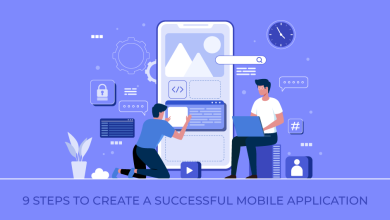20 Technology Skills Every Educator Should Have
Computer Skills For Every Teacher To Master

In Canadian schools, digital tools have risen to prominence in recent years, but covid-19 has put technology front and center, compelling educators and students to sharpen their digital abilities and perhaps re-evaluate their traditional responsibilities.
The information and communications technology council (ictc) published a new study in April 2021 titled 21st-century digital skills: competencies, innovations, and curriculum in Canada. This study looks at a variety of topics, including the most important technical and social skills (also known as “soft skills”) that teachers and students need.
A Setting That Is Constantly Changing
Uncertainty surrounds the vaccine rollout and the upcoming term as the academic year comes to a close and preparations for the fall semester got underway. How will the upcoming academic year be? A return to in-person instruction, online learning, or a blend of the two? The demand for digital talents will only increase, and that much is certain.
Efficiently incorporated into a teacher’s arsenal, edtech has the power to boost student engagement while promoting academic success (Snider & Quan, 2021). As technology usage increases in classrooms, new pedagogical best practices are emerging that support better interactivity, cooperation, and flexibility between teachers and their students. For educators who have taken on both in-person and online teaching obligations, these strategies and the corresponding skills are likely to have long-lasting effects.
Here are 20 fundamental it skills that any schoolteacher should possess today:
1. Skills in word processing
Word processors are undoubtedly some of the oldest programs that are still used on computers today. You’ll need to be an expert user of the top word processors now on the market if you want to succeed as a teacher. This will enable you to start and finally finish all of your writing communications with both your co-workers and students while significantly cutting down on time and help with my assignment.
2. Spreadsheet knowledge
The top 21st-century skills for educators include having a strong command of spreadsheet programs. You may carry out some of the most important components of your teaching responsibilities in a practical and extremely methodical approach with the aid of such priceless software. These skills are great with accounting assignment help.
3. Skills in database management
Revaluation is essential in all of your life’s decisions (ER, 2020). You must develop your database-use skills as a teacher. This involves having the ability to design database tables, store data in those tables, and retrieve data from them. Knowing precisely how to formulate the appropriate searches for the data contained in the databases of your institution.
4. Skills for electronic presentations
In essence, using electronic presentation tools is an integral element of a teacher’s many tasks. As a result, you’ll need to figure out how to become an expert at making electronic presentations for your classes.
5. Knowledge of internet navigation
As you are certainly aware, the internet is a fantastic resource for finding information of all kinds, which will undoubtedly make your job as a teacher much simpler. In general, you’ll need to learn how to navigate the internet effectively to obtain the precise information or educational materials you require.
6. Management of email
Most of us now prefer email for written correspondence in both our personal and professional lives. You will need to be an expert at sending and receiving emails as well as using the several applications that you will need to use.
7. Networking techniques
Teachers who want to stay current in their disciplines must make the time to thoroughly understand the fundamentals of computer networking. If applicable, they should also make every effort to fully comprehend how the institution’s computer network operates and how it might assist them in carrying out their professional responsibilities.
8. Touch typing
Another crucial computing ability that any teacher in the twenty-first century needs to spend time learning. You can dramatically increase both your typing speed and accuracy with this particular skill. Simply depending on your motor responses when typing, rather than your vision, cause this.
9. Management of learning (lms)
Fluency and awareness teachers are increasingly expected to conduct instruction, receive assignments, and communicate with students and parents using lms environments like moodle and d2l, thus it’s important that they feel at ease using this software.
10. Digital interaction
Even though “engagement” is traditionally associated with interpersonal contact, the instructors we spoke with frequently used this phrase to address retention rates and keeping students’ attention when using learning management systems or social media sites like tik tok, Snapchat, etc.
11. Skills in data and analytics
Decision-makers now have access to vastly more data thanks to digitization, which has raised interest in using analytics to improve “evidence-based judgments” and spot previously undetectable patterns.
12. Media and information literacy
Understanding the construction of a media message, its purpose, and its effects are necessary for this.
13. Visual conferences
Being able to plan and carry out a video conversation is a crucial technological competency in many businesses, as employees frequently operate remotely or from different places.
14. Editing of audio and video
It might be helpful to have the ability to edit audio and video files, especially for marketing and entertainment employment. This skill frequently calls for proficiency with editing software, which enables you to edit individual footage or add unique effects.
15. Searching tools
Due to their ability to locate particular websites and information, search engines are frequently used by professionals when conducting internet research. You can broaden your search parameters and locate solutions more quickly by learning how to carry out certain technological activities like entering phrases or filtering articles.
16. Media and information literacy
Understanding the construction of a media message, its purpose, and its effects are necessary for this. In addition to being able to access media and information, one must also be able to critically examine it, assess various media, and finally be able to apply it.
17. Digital competence
The ability to find, assess, produce, and share content online is referred to as core technological competency. This can include the use of search engines, office productivity software, fundamental operating system capabilities, database usage, coding, and computational thinking.
18. Knowledge of computer-related storage devices
Disks, CDs, USB drives, zip discs, and DVDs are examples of data storage media that educators should be familiar with and adept at using.
19. Scanner information
Teachers need to be familiar with scanner usage and our capabilities. Nowadays, everything is done on a computer, so learning computer skills must be a crucial ability.
20. Knowledge of Educational Copyright
The copyright concerns about education, including those using multimedia and the internet, should be understood by educators.
References
Nathan snider and trevor quan (2021). Top tech skills for educators. Https://www.edcan.ca/articles/top-tech-skills-for-educators/
ER (2020). How to Make Progress on Your Goals When You Feel Unmotivated? https://eazyresearch.com/blog/how-to-make-progress-on-your-goals-when-you-feel-unmotivated/




